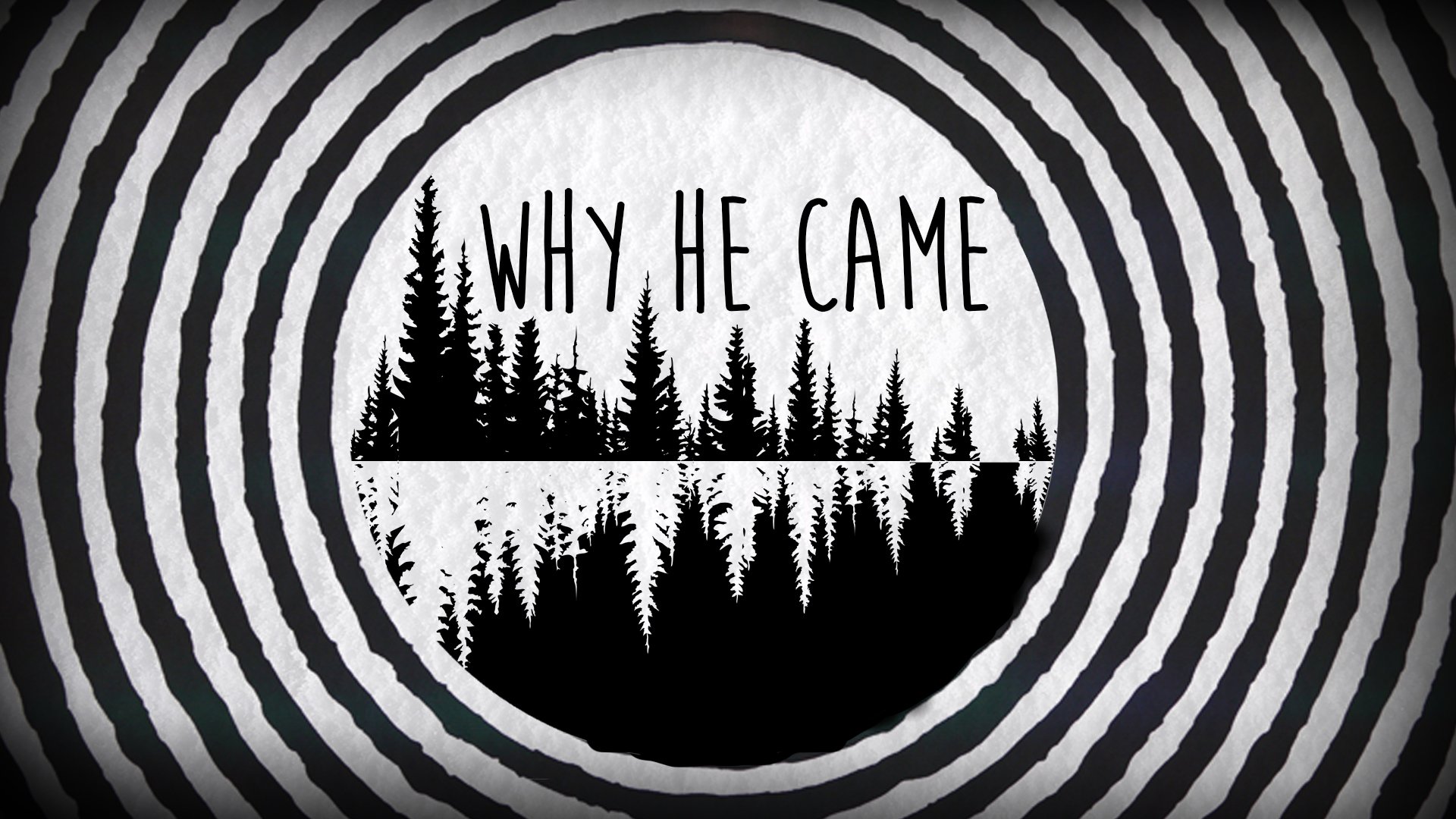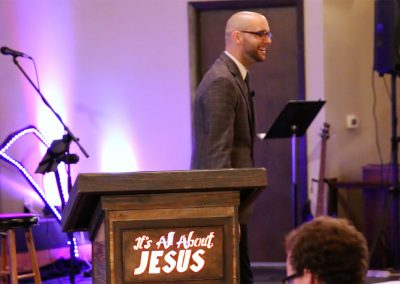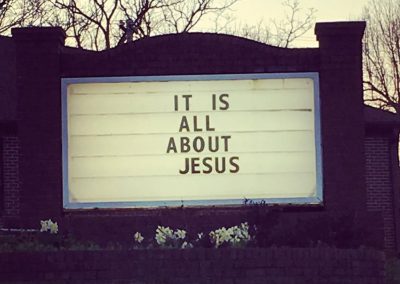Why He Came: Week 5/ 1 John 4:14

Date: December 23, 2018
Speaker: Jason Jordan
Series: Why He Came
Watch the archived Facebook LIVE stream by clicking the button below!
Pastor’s Comment
Thank you so much for listening in here at West Side. We often say that we love the word of God because it points us to the son of God. We hope these messages encourage you and equip you to love Jesus more. We also want you to be apart of a local church, we believe these messages are only supplemental, being apart of a local church is essential. Blessings.
Sermon Notes
ADVENT: “Why he came…” Week 5 1 John 4:14
REVIEW: We have walked our journey this Advent season through the the NT book of 1 John. *Show series review. Today we land on Johns’ last statement.
*ILL> Often this time of year this Christmas story sort of get’s hijacked. What i mean by that is, it’s get put into a category of almost legend. When you think about legends like Big Foot (Pic) or the Loch Ness Monster (PIC) or my favorite Big Foot riding the loch ness monster, the story of Christmas get’s put into a sort of either a legend category or a fairy tale category (PIC)
APP> The problem with that, is the actual biblical stories themselves, they aren’t written like legends, they aren’t written like fairytales. They are written with a notion of understanding that a series of events changed the world. Tim Keller in his book hidden Christmas put it this way, “If Christmas is just a nice legend, in a sense you are on your own. But if Christmas is true- and John says that it absolutely is true- then you can be saved.” pg133
Big Idea> Jesus came to show us that the message of Christmas is true and that you can trust it.
CONTEXT> We turn to the Apostle John, the guy who walked with Jesus while Jesus was on earth. He writes a gospel, a sort of biography of Jesus. John always focuses on the deity of Jesus and primarily the incarnation, the fact that God became a man. John in this one verse gives us 3 reasons why the story of Christmas is true and trustworthy: 1)Christmas is historical, 2)Christmas is experiential and 3)Christmas is supernatural.
- Christmas is historical.
-
-
-
- “we have seen…” John is making a bold statement here, John is saying that he has actually seen Jesus Christ. At the beginning of his letter he puts it this way…
- “That which was from the beginning, which we have heard, which we have seen with our eyes, which we looked upon and have touched with our hands, concerning the word of life—“ 1 John 1:1 APP> Wow, John is saying remember the walking now water, remember the blind seeing, yeah we where there for that! We saw that!
- “In those days a decree went out from Caesar Augustus that all the world should be registered. 2 This was the first registration when Quirinius was governor of Syria.” Luke 1:1-2 APP> Why is this important? Because in ancient literature, this is like citing your sources. The biblical writers are informing you of real, historical events and saying, “The story of Christmas happened and it happened in history.”
-
-
APP> This is what theologians call, “Apostolic Witness” That the message and story we have are from eye witness accounts. Do you know how profound it is that we have 4 gospel accounts of Jesus’ life? Anyone who lived back then didn’t have CNN, you had to be a significant person to be mentioned.
*ILL> Show the biblical charts graph.
Why does this matter?
-
- I can trust this message.
- I can’t change this message.
- I can know that God is working in the ordinary.
2) Christmas is experiential.
-
-
- “and testify” This is huge what John is saying here! The word that he is using here is significant. There are a number of implications about this:
-
-
- Christianity isn’t just a truth to know but a life to live. John is saying this is something that really changes you, this isn’t just something that you can know but someone know. You might be asking, “Pastor how do I experience this?” *ILL> John Wesley is one of my all time heroes of the faith. He is the founder of the Methodist church movement. John Wesley created or rather borrowed from his Anglican roots what is known as, “The Weslyian Quadrilateral” or better yet, a four legged stool. They are as follows: (* PIC) “How can I know God? 1) Scripture 2) Tradition 3) Reason 4) Experience
- Your life is a testimony not a biography. John says that we testify to this, literally our lives are now evidence for this truth and news. That’s a testimony. A Biography is about you. *ILL> Reading Dr. Kings autobiography. It’s about what he accomplished, test is about what Jesus accomp
3) Christianity is supernatural.
-
-
- “the Father has sent his son to be the Saviour of the world.” In these few short words we have the incarnation, the life the death and the resurrection of Jesus Christ. This is an element of the story that we can’t deny!
-
“Infinite, and an infant. Eternal, and yet born of a woman. Almighty, and yet hanging on a woman’s breast. Supporting a universe, and yet needing to be carried in a mother’s arms. King of angels, and yet the reputed son of Joseph. Heir of all things, and yet the carpenters despised son. Oh, the wonder of Christmas!” – Charles Haddon Spurgeon
APP> The wonder of Christmas leads us to worship Jesus. Be in awe of this Jesus, this big, uncontrollable Jesus this Christmas.
“But Mary treasured up all these things, pondering them in her heart.” Luke 2:19
What are we pondering and treasuring? The fact that Jesus came to:
-
-
- Take away sin.
- Destroy the works of the devil
- give us life.
- to reveal God’s love.
- to be the savior of the world.
-
Big Idea> Jesus came to show us that the message of Christmas is true and that you can trust it.
- It’s historical
- It’s experiential
- It’s supernatural





